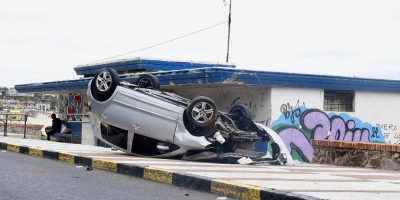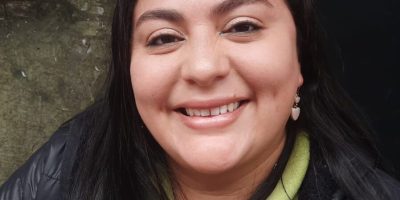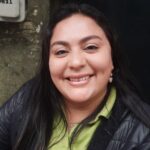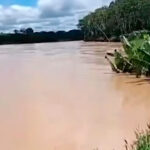The presence of refugees in Burundi’s communities has proven to be a catalyst for local development, transforming challenges into opportunities for growth and collaboration. Refugees bring diverse skills, experiences, and cultural perspectives that enrich the host communities, fostering innovation and resilience. The PRODECI-TURIKUMWE Project funded by the International Development Association (IDA), leverages these strengths by supporting refugees and their host communities through developing microenterprises, improving healthcare, and helping various associations aimed at promoting sustainable development.
This initiative has improved the quality of life for both refugees and residents and highlighted the significant contributions refugees can make to a country’s economic and social progress. In fact, Burundi is home to around 90,000 refugees living in five camps, with over 90% from the Democratic Republic of Congo and the remainder from Rwanda, Sudan, Uganda, and the Central African Republic.
Upendo Cooperative’s Impact
“It is wonderful to see refugees and the host community working together, creating jobs, and making profits for themselves and their families,” said Consolatte Masama, a refugee in the Musasa camp. Consolate leads the Upendo Cooperative, which specializes in mushroom cultivation for commercial purpose and ensuring balanced nutrition. The cooperative was initiated when the food provided to refugees was insufficient and signs of stunting were observed in children under five years of age. With the cooperative’s project plan and capital already in place, the project supported building infrastructure, training workers, and starting production.
“We received training to produce mushrooms and high-quality inputs to boost production. In less than three months, we increased our production from 3,000 to 7,000 batches per month. With the high cost of meat, the community is turning to mushrooms, which are just as nutritious,” explained Consolate.
Healthcare Improvements
The Musasa camp is home to 9,000 refugees who used to walk for over an hour to receive healthcare, including maternity services. Now, a health center just two minutes from the camp has been renovated and equipped with modern care and maternity facilities. The center’s capacity has been doubled, and it now handles at least 50 births per month, including 20 cesarean sections. “The health center is now equipped with modern maternity equipment, heating lamps, oxygen concentrators, and protective gear. Our practitioners have also received training to use this modern equipment to better serve patients,” said Dr. Prosper Irakoze, head of the Musasa camp health center.
Other improvements include the upgrade of a health center in Rusimbuko to a hospital. This modern hospital now serves over 120,000 people in the area, including 7,300 refugees. Its capacity has been increased to accommodate 100 patients.
“We are very happy not only with the proximity of this hospital but also with the services it offers. As a mother, I no longer need to travel long distances to get my children treated, as young children often have health issues,” said Nahimana Gregonie, a beneficiary of the Rusimbuko Hospital.
Economic empowerment through agriculture
While a large number of Burundians rely on agriculture for their livelihood, the beneficiaries of this project have received key support to harness agriculture to achieve economic growth, breaking out of subsistence farming. Before receiving support from PRODECI-TURIKUMWE, the beneficiaries, mostly cooperatives, had worked on a business plan. For instance, with the project funding and technical assistance, the Gasorwe Cooperative improved their cultivation of maize, achieving a good yield thanks to new methods that combine chemical fertilizers and organic manure. For the 2024 harvest, they produced 9 tons of maize, achieving a surplus.
“While others sold their harvest, we prioritized feeding our families and transforming the surplus. We processed the maize into fortified flour for porridge and maize paste. Through our contacts, another young person helped us find a market outside Burundi, specifically in Canada. To date, we have exported 4 tons, which we sell at $3 per kg,” said Jean Bosco Tombola, President of the Gasorwe Cooperative.
They are now partnering with other associations to buy their harvests and increase their export capacity, especially diversifying the types of flour they export, which are organic and healthy.
Their ambition is to involve other young people from different localities with various crops to further expand their product range for export. “We see potential in exportation and want to encourage other associations supported by the project to cultivate products we lack but would be useful for export,” added Jean.

Sign up for free AllAfrica Newsletters
Get the latest in African news delivered straight to your inbox
Success!
Almost finished…
We need to confirm your email address.
To complete the process, please follow the instructions in the email we just sent you.
Error!
There was a problem processing your submission. Please try again later.
Job creation, training, and building of job experience were bonus factors that stemmed from the work export these crops. During the production of this flour, they created jobs for 38 unemployed young people and provided 1,100 man-days of work during cultivation. The indigenous Batwa population was also included among these workers. The cooperative has successfully exported maize flour, cassava flour, and peanuts, with plans to expand further.
“I was here seven years ago when the project was thought of. Today, I am back in Burundi and the implementation of this project is very impressive. It is not just food on the table and money in the pocket, but there is happiness at the homes of the beneficiaries,” said Varalakshmi Vemuru, Practice Manager, Social Development for the World Bank.
The project has improved the living conditions of its members and also addresses local malnutrition issues. The work done by the beneficiaries is a model of social cohesion, comprising both Congolese refugees and the host Burundian community.
















